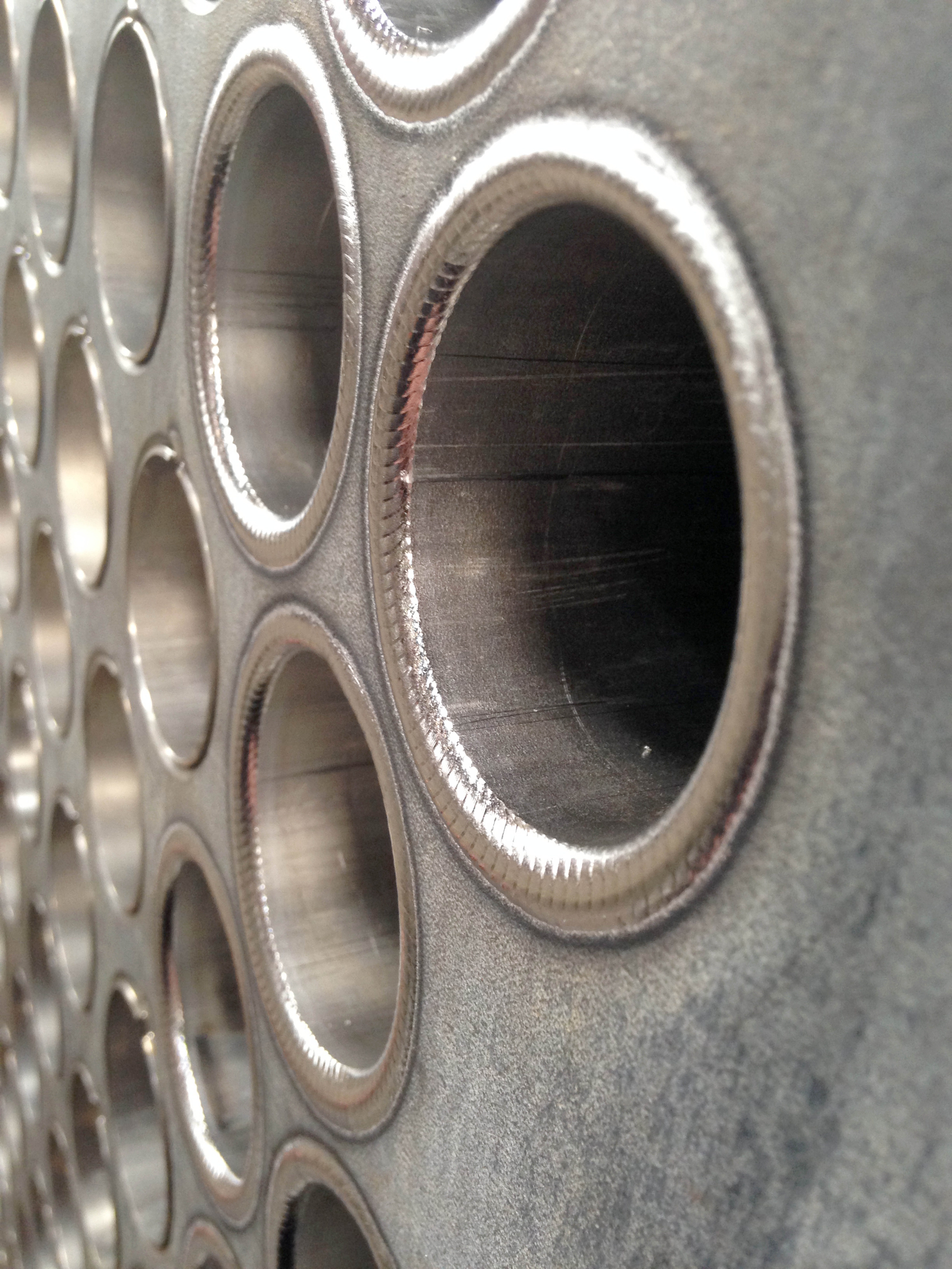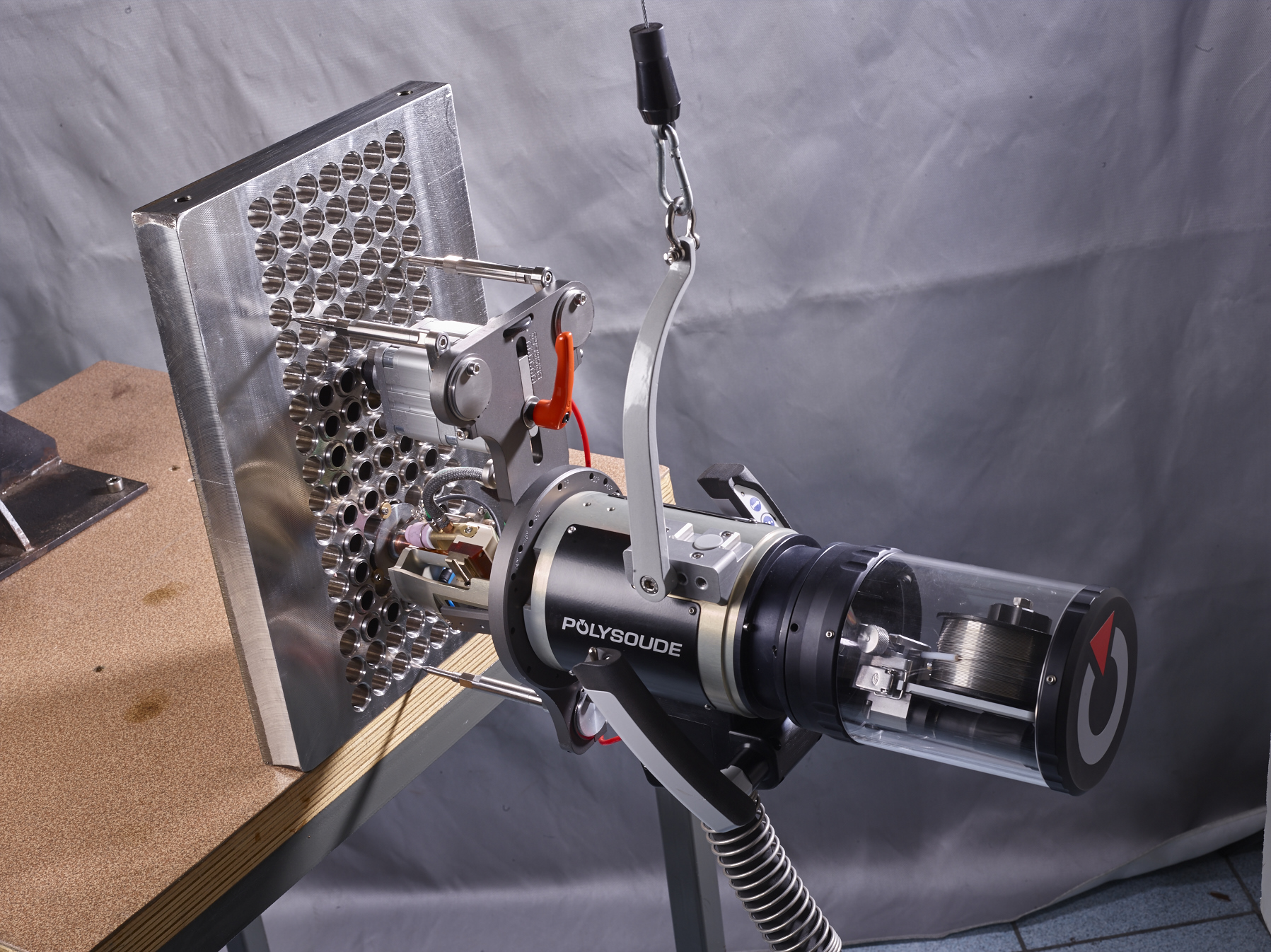An even higher standard of welding on heat exchangers will now be achieved by Efficient Engineering, with the installation of two orbital welding machines from France. In the construction of heat exchangers, the welding of the tube to tubesheet connections is known to be a challenging task, according to Dries Vandezande, Quality Manager and Welding Engineer at Efficient Engineering. To manage its increasing orders of heat exchangers while constantly raising its production standards, the company has invested in orbital tube-to-tubesheet technology from leading OEM Polysoude.
“These machines will provide excellent repeatable results on every job, delivering consistency in the weld profile,” says Vandezande. “These welds are very demanding, and require a level of welding skill which is in short supply in South Africa.”
While a manual operator would have interruptions as he does both sides of the weld, which can produce defects such as pinholes, the orbital welding machine conducts the whole weld in one pass. The quality result is ensured by a pre-programmed welding procedure, he explains. The procedure qualification record (PQR) will assure the customer that, as long as the base material and joint preparation is consistent, the same high level of results will be achieved.
“Predictability is important for our customers, and this orbital technology raises the bar on that score,” he says. “It is especially important for many of the more exotic materials that you can provide that predictability that the weld is going to be sound.”
The units can weld a range of material from stainless steel, carbon steel and low alloys – and with different welding heads can also be applied to exotic materials like titanium. Among the key features of the orbital welding machine is their arc voltage control, he explains, which achieves a consistent weld bead. After pre-programming, the arc voltage control keeps the weld pool constant to deliver the welds predicted in the PQRs. The advanced orbital welding machines can also be applied, with different accessories, to header boxes where limited access through holes only is available.
“This is very novel technology, which opens up a new world for Efficient Engineering,” he says. “When there is market demand, we will be able to apply welding techniques that deliver the best results. This overcomes the challenge that with manual welding the risk of defects and the challenge to repair them is high.”
The new orbital welding machines also bring safety benefits, he says, especially related to the pre-heating of the pieces to be welded. Certain alloy materials could require pre-heating up to 150 or even 250 degrees Celsius. With the orbital welding machine, the operator is at a safer distance from the test piece.



Typical tube-to-tubesheet set-up with one operator operating two machines.
Detailed view of torch and centering device.
Typical excellent finish achieved using the orbital welding machine.


